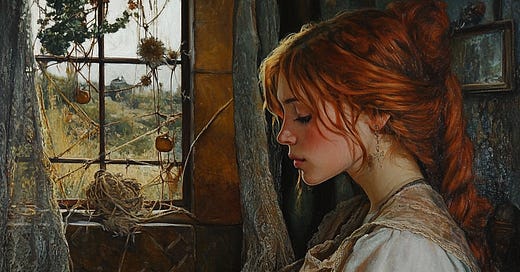The protagonist in Delany’s “Dhalgren” is a poet. I don’t know much about poetry, but I love the romance of the portrayal of this poet. He carries his notebook everywhere. He frequently whips it out to add a line to the poem he’s working on as inspiration strikes him. He struggles with writing, with word choice. We see him often pouring over his work — adjusting, altering, crossing out. The most important part is getting the right words in the right order. The words that evoke the exact right image to evoke the exact right emotion, words that correctly flow one into the other without seams or jagged edges.
The majority of his notebook consists of scribbled out words. Emotive symbols that he tried out, played with, nudged into position, and finally gave up on. Sometimes they had to be abandoned far later, when advances in the poem made it clear earlier words didn’t quite fit after all. Sometimes words that were previously crossed out are added back again, only to even later be crossed out once more. It’s a delicate balance, it’s a constant readjusting, and it has to be perfect to faithfully evoke the resonance he feels. The beauty is always there, just beneath the surface of not-quite-right words, and he can’t quite get to it. But he can see it. And he isn’t giving up. He works at it with fierce determination. Jotting, Musing, Furrowing, Scribbling Out.
I know a woman who is crafting a poem. She isn’t using words for her poem, she is using her life. She can see the emotive resonance she wants to produce in the world. She considers life choices like she considers new words. She searches for the right circumstances to evoke those words, the stanzas that create the framework of emotional cadance. When she has them she doesn’t just plop them down and call it done. She examines and muses. She nudges the details of her life, nestles events like puzzle pieces. She interrogates relationships, nurturing and pruning a fairy garden of vibrant souls. Nothing is constrained, life is too important for that, but the chaos is joyful and creative.
She’s been doing this for decades. The poem changes as she changes, but it always strives for a beauty of living. Old missteps are adjusted. The scribbles are everywhere, a constant refining of meter and flow to create the life richest in the deepest good emotions. Love, wonder, joy. Reason is vital, she’s not half-assing this on vibes, she thinks through and examines all her desires, her emotions, her reactions. She experiments, changing a color here, adding a syllable there, and watches what effect it has. Not on her, or not just on her, but on everyone who is a chord in a her song. Everyone who carries a theme through her symphony. This is a poem of living people. If the rhythm wavers or the melody falters, she notices. She adjusts again. Scribble here. Reconcile two friends there. End a personal bad habit, initiate a conversation, sprinkle in some illicit substances at just the right ratio. Maybe help direct an entire new project, spending hours every week as a volunteer. Always in the service of a life overflowing with warmth, rich in lovers and deep friends.
It’s breathtaking to watch. A poem that is a lifetime. A poem that measures its meter in years, its imagery in domiciles, its symbolism in lives. I can’t stop watching her working at it. It’s the most beautiful thing in the world. And the most amazing thing, the thing I still can’t believe and that sometimes drives me to actual, ridiculous tears, is that I get to be part of this poem. I am a verse, or a theme, or a thread, woven in amongst all the others. Adding my song as support, my body as refrain, for at least some part of this unrepentant wonder. I cannot believe how fortunate I am. If I am known for anything in the future, it will be as a part of this work. This is what the simulation was built to simulate. It is glorious. She is glorious. May it never end.





